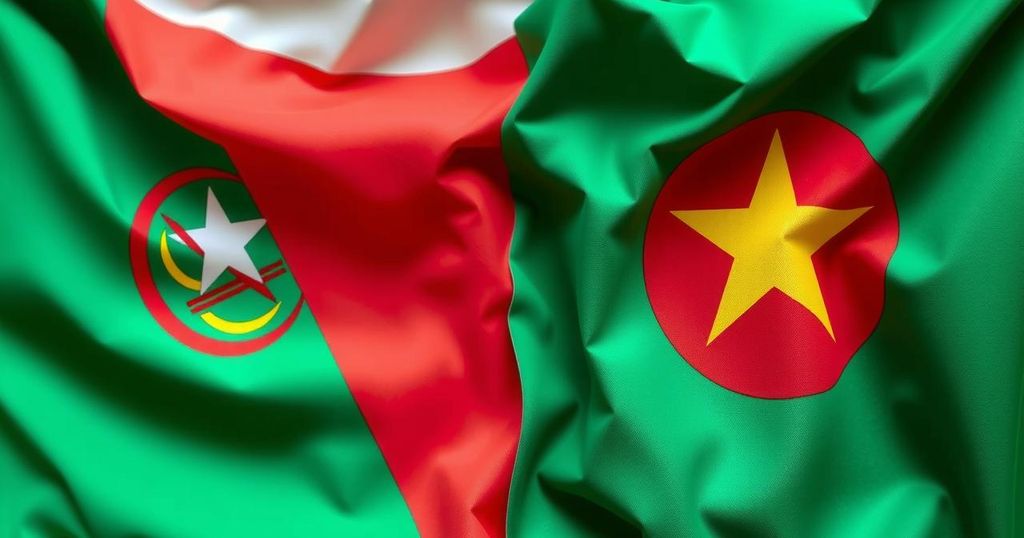Somaliland has reiterated that its Memorandum of Understanding (MoU) with Ethiopia is valid despite a new diplomatic accord between Somalia and Ethiopia. Somaliland insists its agreements are separate and stresses its intention to pursue recognition and cooperation independently of the Somalia-Ethiopia discussions. Upcoming technical talks in 2025 may clarify the implications of these dynamics.
In the wake of a recent agreement between Somalia and Ethiopia, Somaliland has reaffirmed its commitment to the Memorandum of Understanding (MoU) established with Ethiopia. Following the diplomatic mediation led by Turkish President Recep Tayyip Erdogan, which resulted in the Ankara Declaration, Somaliland officials expressed that their ties with Ethiopia remain unaffected. Despite Somalia’s rejection of Ethiopia’s bid for a coastal corridor, Somaliland maintains that its agreements are separate from the dealings between Ethiopia and Somalia.
Abdulahi Mohammud, a Somaliland official, stated, “The relationship between Somalia and Ethiopia, that is their business. We are minding our own business.” This position indicates Somaliland’s intention to keep its diplomatic channels open with Ethiopia, independent of Somalia’s diplomatic disputes. As tensions rise, Somalia has sought to expel Ethiopian diplomats and restrict its involvement in Somalia-related missions, indicating a clear divide in the region’s alliances.
Turkey’s mediating role aims to ensure Ethiopia secures sea access, focusing on arrangements that respect Somalia’s sovereignty. Abdurahman Seid, a political analyst, highlights that the new talks scheduled for 2025 are critical for resolving existing disagreements. However, he also observes that the phrasing of the Ankara Declaration suggests that the existing MoU between Somaliland and Ethiopia may no longer be validated.
After the inauguration of President Abdirahman Mohamed Abdullahi, it appears Somaliland remains committed to its MoU with Ethiopia. Abdullahi’s administration seeks to finalize and implement this agreement, stating, “We have a binding MoU and we are pursuing it.” This commitment indicates that despite wider regional dynamics, Somaliland views its sovereign agreement as a priority, regardless of the actions taken by Somalia.
In conclusion, while ongoing discussions between Somalia and Ethiopia could potentially alter regional dynamics, Somaliland’s determination to uphold its MoU with Ethiopia reflects its independent diplomatic stance. As both parties navigate their complex relationships, the future of Somaliland’s agreements will undoubtedly shape its quest for international recognition and influence within the Horn of Africa.
Somaliland, a self-declared independent region in northern Somalia, has been seeking international recognition and maintains a distinct political stance. Its relationship with Ethiopia has evolved over time, highlighted by a Memorandum of Understanding (MoU) that aims to enhance mutual interests, particularly concerning maritime access. Recent diplomatic engagements between Somalia and Ethiopia, particularly mediated by Turkey, have raised concerns for Somaliland, prompting its officials to clarify their position on the continued relevance of their prior agreements with Ethiopia.
The reaffirmation of Somaliland’s MoU with Ethiopia amidst evolving talks between Somalia and Ethiopia signifies a commitment to its established agreements. While diplomatic tensions rise in the region, Somaliland aims to maintain its independent position and continue its pursuit of international recognition, viewing its relationship with Ethiopia as critical to its interests. The outcome of the upcoming technical discussions could hold substantial implications for all parties involved.
Original Source: www.garoweonline.com






